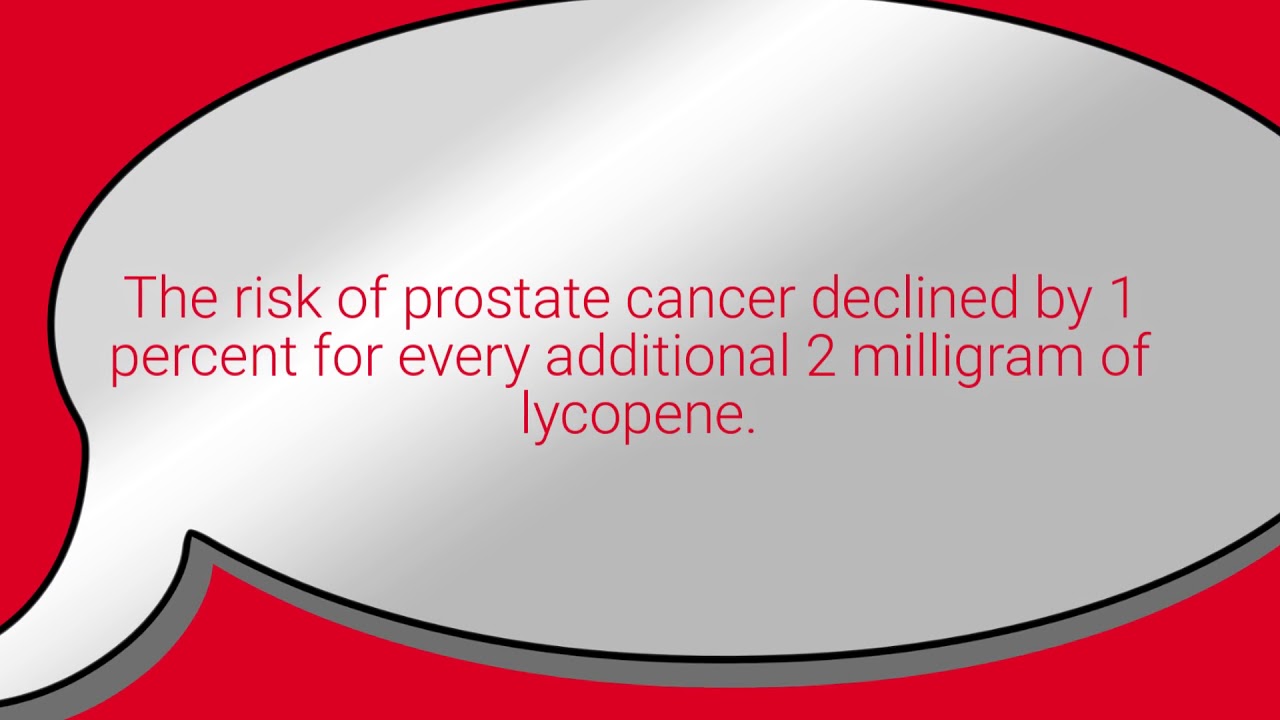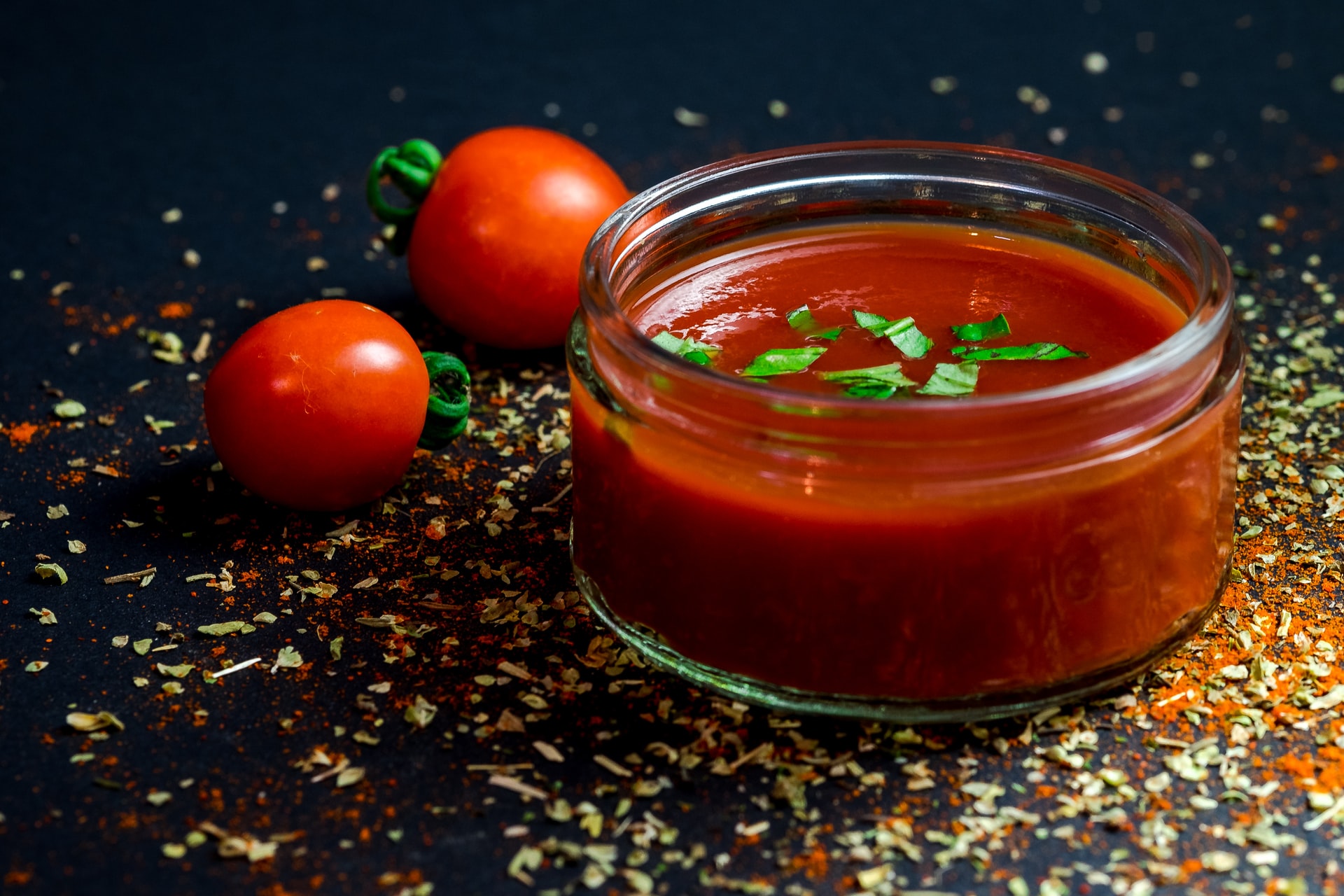Lycopene - Health Benefits And Its Use For Preventing Prostate Cancer
Lycopene is an antioxidant-rich plant nutrient. The pigment is responsible for the distinctive color of red and pink fruits such as tomatoes, watermelons, and pink grapefruit.
Author:James PierceReviewer:Karan EmeryOct 11, 20224 Shares437 Views

Lycopeneis an antioxidant-rich plant nutrient. The pigment is responsible for the distinctive color of red and pink fruits such as tomatoes, watermelons, and pink grapefruit.
Lycopene, also known as rhodopurpurin, is a polyunsaturated hydrocarbon that is a tetraterpene linked with eight isoprene units with carbon and hydrogen solely as building elements.
It has the chemical formula C40H56, a molar mass of 536.87 g per mol, and is water-insoluble. Its eleven conjugated bonds give it a rich red color and contribute to its antioxidant properties. Its bright red color and lack of toxicity make it an excellent dietary supplement.
Its anti-oxidant action is due to the eleven conjugated double bonds. Only trans forms exist in nature despite their stability, whereas all cis-forms are unstable. The cis-forms are present in human serum in sound, and all trans-forms are transformed to cis forms in the body.
Lycopene Sources
Lycopene-rich fruits and vegetables include autumn olive, gac, tomatoes, watermelon, pink grapefruit, guava, papaya, seabuckthorn, wolfberry, and rosehip. Lycopene is often found in ketchup.
However, gac contains the greatest lycopene concentration of any known fruit or vegetable (multiple times that of tomatoes); tomatoes and tomato-based sauces, juices, and ketchup account for more than 85% of most people's daily lycopene consumption. Tomato lycopene concentration varies by variety and rises as the fruit ripens.
Unlike other fruits and vegetables, which lose nutritious value such as vitamin C when cooked, tomato preparation enhances the concentration of accessible lycopene. Lycopene is up to four times more accessible in tomato paste than in sh tomatoes.
When compared to raw tomatoes, processed tomato products such as pasteurized tomato juice, soup, sauce, and ketchup have a greater concentration of bioavailable lycopene.
Cooking and smashing tomatoes (as in canning) and putting in oil-rich foods (such as spaghetti sauce or pizza) boost the digestive system's absorption into circulation. Because lycopene is fat-soluble, the oil is supposed to improve absorption.
Gac has a high lycopene content, mostly from its seed coatings. Lycopene is also found in cara cara navel and other citrus fruits such as pink grapefruit. Some foods that do not seem red contain lycopene, such as asparagus, which has around 30 g of lycopene per 100 g meal (0.3 g/g), and dry parsley and basil, which contain approximately 3.5-7.0 g/g of lycopene. Lycopene is often derived from tomatoes when used as a food additive.
Lycopene Health Benefits
Lycopene has been linked to various health advantages, including protection against sunburn and some forms of cancer.
- Strong Antioxidant: Lycopene belongs to the carotenoid family of antioxidants. Antioxidants safeguard your body from the harm produced by free radicals. When free radical levels exceed antioxidant levels, your body experiences oxidative stress. This stress has been related to several chronic illnesses, including cancer, diabetes, heart disease, and Alzheimer's. According to research, lycopene's antioxidant capabilities may help keep free radical levels in check, protecting your body against some of these illnesses.
- Cancer prevention: Lycopene's potent antioxidant effect may help to prevent or halt the course of some cancers. Test-tube studies, for example, reveal that the vitamin may inhibit the development of breast and prostate cancers by restricting tumor growth. According to animal studies, it may also limit the formation of cancer cells in the kidneys. In humans, large intakes of carotenoids, especially lycopene, are associated with a 32-50% decreased risk of lung and prostate cancer. Men who drink at least two servings of lycopene-rich tomato sauce per week are 30% less likely to acquire prostate cancer than those who consume less than one serving per month.
- Promote Heart Health: The antioxidant properties of lycopene may help improve cholesterol levels and lower your risk of developing or dying from heart disease.
- Sunburn protection: Lycopene may help strengthen your skin's defenses against sunburn and UV-ray damage. However, it is not a substitute for sunscreen.
- Lycopene may benefit your vision by preventing or delaying the production of cataracts and lowering your risk of macular degeneration, the major cause of blindness in older persons.
- Lycopene may help alleviate neuropathic pain, which is pain caused by nerve and tissue damage.
- Lycopene's antioxidant capabilities may help prevent seizures and memory loss associated with age-related disorders such as Alzheimer's.
- Lycopene's antioxidant effect may slow down the death of bone cells, strengthen bone architecture, and help maintain bones healthy and strong.
Prostate Cancer Treatment Using Lycopene
People who consume a high-lycopene diet may be less likely to get prostate cancer, most common in men aged 40 to 50. As a result, lycopene supplements are abundant in food in North America and Europe.
According to research published in the American journal of epidemiology in 2002, males with high blood lycopene levels are more vulnerable to prostate cancer, but those with a high lycopene diet are less vulnerable.
Men with prostate cancer are treated with surgery, and the tumor is detonated in care research reported by The British Journal of Urology. Half of the males were given lycopene pills, while the other half were not.
Those who take lycopene supplements have fewer bone aches and live longer than those who do not. This illustrates the significance of lycopene in the treatment of prostate cancer.

Lycopene and the Prostate
Lycopene Adverse Effects
Lycopene is a non-toxic antioxidant often present in the diet, mostly in tomato products. There have been reports of dietary lycopene intolerance or allergic reactions, which may induce diarrhea, nausea, stomach discomfort or cramps, gas, and lack of appetite.
When used with anticoagulants, lycopene may increase the risk of bleeding. Because lycopene may produce low blood pressure, it may interact with blood pressure medications. Lycopene may affect the immune system, the neurological system, UV sensitivity, or medicines used to treat gastrointestinal disorders.
Lycopenemia is an orange coloring of the skin caused by high lycopene consumption. After ceasing high lycopene consumption, the discoloration should diminish.
People Also Ask
Is Lycopene Cancerous?
Lycopene has anticancer and antioxidant effects. Numerous epidemiologic studies have shown an essential link between high consumption of lycopene-rich foods and a lower risk of several malignancies, notably prostate cancer.
Does Lycopene Cause Weight Gain?
Lycopene supplementation reduces body weight gain caused by a Western diet by boosting the expression of thermogenic/mitochondrial functional genes and reducing insulin resistance in obese mice adipose tissue.
Is Lycopene A Blood Thinner?
Yes. Lycopene, which includes blood thinners, has been demonstrated in studies to prevent blood clotting. As a result, it should not be used with aspirin, anticoagulants (blood thinners), or antiplatelet medicines such as ibuprofen or naproxen.
Conclusion
Lycopene is a very potent antioxidant. According to research, those who consume many tomato products have a decreased risk of lung, prostate, and stomach cancer. Lycopene may also help prevent the cervix, breast, pancreatic, colon, and esophagus malignancies. However, this has yet to be confirmed.
Numerous epidemiologic studies have shown a substantial link between high consumption of lycopene-rich foods and a lower risk of several malignancies, most notably prostate cancer. However, few well-designed clinical studies have been conducted, and the evidence remains unclear.

James Pierce
Author

Karan Emery
Reviewer
Latest Articles
Popular Articles
